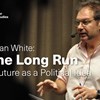releasing

Magnus Linton
I made my debut in 2000 with Veganerna (The Vegans) and in spring 2019 I will be releasing the book Text & Stil - om konsten att berätta med vetenskap (Text & Style - about the art of using scienc(2005), (2007), (2010), (2012), and (2015), where I told the fascinating story about the rise and fall of Swedish drug politics.
#MeToo, Social Norms, and Sanctions
in: The Journal of Political Philosophy, Volume 28:3, s. 273-295 (2020) In October 2017, following the Harvey Weinstein scandal, US actress Alyssa Milano called upon victims of sexual harassment to uni

The Future as a Political Idea - Professor Jonathan White
Introduction to Jonathan White's new book In the Long Run: the Future as a Political Idea. A revealing history of the future as a political idea, from the Enlightenment to the current climate crisis.
Women's experience of child death over the life course: A global demographic perspective
AbstractThe death of a child affects the well-being of parents and families worldwide but very little is known about the scale of this phenomenon. We provide the first global overview of parental bere
How software developers can fix part of GDPR’s problem of click-through consents
AI & Society. https://doi.org/10.1007/s00146-020-00970-8 Abstract When General Data Protection Regulation of the European Union (GDPR) arrived, most people probably noticed a practical flaw in the pr, p. 858)—revealing a practical flaw in the GDRP regulation, in which individuals’ privacy fail to be properly protected.
(NEW SEMINAR REPLACING LUKAS MEYER) > Jonathan White: In the Long Run - the Future as a Political Idea
Venue: Institutet för framtidsstudier, Holländargatan 13, 4th floor, Stockholm, or online. Research seminar with Jonathan White, Professor of Politics, London School of Economics. -- Please note that thi
David Grusky: Should scholars own data? The high cost of neoliberal qualitative scholarship
Welcome to this seminar with David Grusky, Professor of Sociology at Stanford University.The seminar is jointly organized by the Institute for Analytical Sociology and the Institute for Futures Studies.D Thursday, October 6 13:00-15:00 (CET) At the Institute for Futures Studies (Holländargatan 13, Stockholm), or onlineIf qualitative work were to be rebuilt around open science principles of transparency and reproducibility, what types of institutional reforms are needed? It’s not enough to mimic open science movements within the quantitative field by focusing on problems of data archiving and reanalysis. The more fundamental problem is a legal-institutional one: The field has cut off the development of transparent, reproducible, and cumulative qualitative research by betting on a legal-institutional model in which qualitative scholars are incentivized to collect data by giving them ownership rights over them. This neoliberal model of privatized qualitative research has cut off the development of public-use data sets of the sort that have long been available for quantitative data. If a public-use form of qualitative research were supported, it would not only make qualitative research more open (i.e., transparent, reproducible, cumulative) but would also expand its reach by supporting new uses. The American Voices Project – the first nationally-representative open qualitative data set in the US – is a radical test of this hypothesis. It is currently being used to validate (or challenge!) some of the most famous findings coming out of conventional “closed” qualitative research, to serve as an “early warning system” to detect new crises and developments in the U.S., to build new approaches to taking on poverty, the racial wealth gap, and other inequities, and to monitor public opinion in ways far more revealing than conventional forced-choice surveys. The purpose of this talk is to discuss the promise – and pitfalls – of this new open-science form of qualitative research as well as opportunities to institutionalize it across the world.

Should Scholars Own Data? David Grusky About the American Voices Project
If qualitative work were to be rebuilt around open science principles of transparency and reproducibility, what types of institutional reforms are needed? It’s not enough to mimic open science movemen
Urban Futures from Essentials to Experiences - The transformative role of marketplaces in 21st century cities
Place: The Institute for Futures Studies, Holländargatan 13, StockholmRegister hereInformality is on the rise. From remote labour and services-on-demand to food trucks and pop-up shops, its transformat

Melinda A. Roberts
I am a professor of philosophy at the College of New Jersey and serve as the coordinating prelaw advisor for the College. Previously, I worked as an associate at the law firm of Cleary, Gottlieb in Ne








